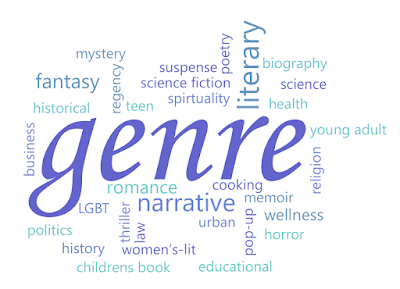
Mastering Genre Fusion: The Path to Creating a Distinct Story Brand
By Olivia Salter
In today’s storytelling world, genre is king. Every successful author understands the importance of crafting stories that resonate with audiences while standing out in a sea of content. To achieve this, writers must elevate their craft to an unparalleled level, weaving together multiple genres seamlessly and transcending traditional storytelling norms. It’s not just about telling a story—it’s about creating a story brand.
Here’s how you can do it effectively:
1. Embrace Genre Fusion for Market Relevance
In the highly competitive world of fiction, a single-genre story often struggles to capture attention. Modern audiences crave complexity and novelty, which means you need to blend 2-4 genres in every story you write. This approach isn’t just a creative challenge; it’s a strategic necessity.
Consider the following combinations:
- Horror + Romance + Historical Fiction: Think of a gothic love story set in the 19th century with supernatural elements.
- Science Fiction + Thriller + Mystery: Imagine a futuristic detective uncovering conspiracies that threaten an interstellar civilization.
By layering genres, you can create narratives that appeal to diverse reader preferences, increasing your work’s marketability. However, the fusion must be intentional and balanced—genres must enhance, not overpower, one another.
2. Avoid Chaos Through Strategic Genre Integration
Genre blending without structure leads to story chaos, where plotlines compete instead of complementing one another. The key to mastering this balance is understanding and incorporating the 45+ special plot beats inherent to each genre. These beats serve as the foundation for creating a cohesive and compelling narrative.
For example:
- In a Romantic Comedy + Mystery, the romantic beats (meet-cute, misunderstanding, resolution) should align with the mystery beats (inciting crime, clues, revelation).
- In an Action + Fantasy, the hero’s journey structure should integrate seamlessly with the high-stakes action beats, ensuring the pacing and tone remain consistent.
Mapping out these beats and interweaving them into a single, powerful storyline requires discipline and advanced plotting techniques. Tools like beat sheets, story templates, or specialized writing software can help manage complexity and maintain clarity.
3. Transcend Genres to Build a Memorable Brand
The final step in creating your story brand is learning how to transcend your genres. This means pushing past conventions and injecting originality into your work. Audiences don’t just want another dystopian survival tale or supernatural love triangle—they want something that surprises and resonates on a deeper level.
How to transcend genres:
- Innovate with Themes: Explore universal themes like identity, morality, or resilience, but with a unique twist that challenges readers’ expectations.
- Defy Tropes: Rethinking common genre tropes in ways that feel fresh yet satisfying.
- Create Multi-Dimensional Characters: Ensure your protagonists and antagonists are layered, with motivations that cross genre boundaries.
- Develop a Signature Style: Your voice and narrative approach should be distinctive enough to be recognized as your own, even when working within well-worn genres.
Become a Plot Magician
To achieve mastery in genre storytelling, you must become a plot magician. This means learning and applying advanced storytelling techniques to weave genre elements into a seamless whole. But it’s not just about mastering the craft—it’s about leveraging technology to streamline your process.
Tools for Success:
- Writing Software: Programs like Scrivener, Plottr, or Dramatica help organize your multi-genre storylines.
- AI Assistants: Use tools to brainstorm ideas, refine plots, or generate solutions to narrative challenges.
- Community Resources: Join workshops or writer’s groups focused on genre fusion and storytelling innovation.
Invest in your craft, learn the techniques of a plot magician, and leverage technology to bring your stories to life with efficiency and precision. The world of storytelling is waiting for your distinct brand to rise above the crowd.


